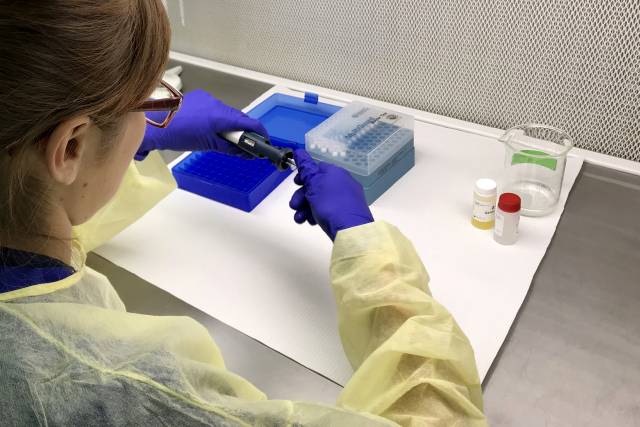One of the main challenges for the health sector in Nicaragua is the integration of information from diagnostic laboratories with surveillance systems. To help improve this process, from October 2017 the validation and subsequent implementation of the Laboratory Information Management System (SMIL), an automated system developed by the Ministry of Health, began at the National Diagnostic and Reference Center (NDRC), in collaboration with the team from the Institute of Sustainable Sciences (ICS). This system automatically connects with the ALERTA System of Epidemiological Surveillance, greatly improving the response time of the network of laboratories in the country in the delivery of diagnostic results of arboviruses and respiratory diseases.

The main objective of this proposal is to strengthen the staff of the laboratory network in the use of the system and in the analysis of the information that is generates.
The success in the implementation until now of the SMIL gives Nicaragua the capacity to replicate the experience towards other priority diagnoses in the country. A project called "Strengthening of the Laboratory Information Management System (SMIL) in the network of national epidemiological diagnostic laboratories" (one of the winners of the winners of the call for proposals for the implementation of IS4H projects promoted by the Pan American Health Organization) aims to strengthen the information management capacity of the network's national laboratories, strengthening the human resources, the quality of data, and the processing and analysis of information. The project will enable access to information for clinical and epidemiological personnel, improving the care and follow-up of ambulatory and hospitalized patients, which includes the development of tuberculosis and HIV modules.
The training of human resources competencies is part of the national strategy of information systems, therefore the main objective of this proposal is to strengthen the staff of the laboratory network in the use of the system and in the analysis of the information that is generates, resulting in the improvement of data quality and timely access to health information for informed decision making.
To strengthen the quality of information and diagnostics, the development of a quality control module and the automation of information entry processes from electronic equipment using application development interfaces is promoted. With the execution of this project, the national strategy for strengthening the health information systems and the program for the creation of competencies for the human resources of the health system in the country will have invaluable support.
